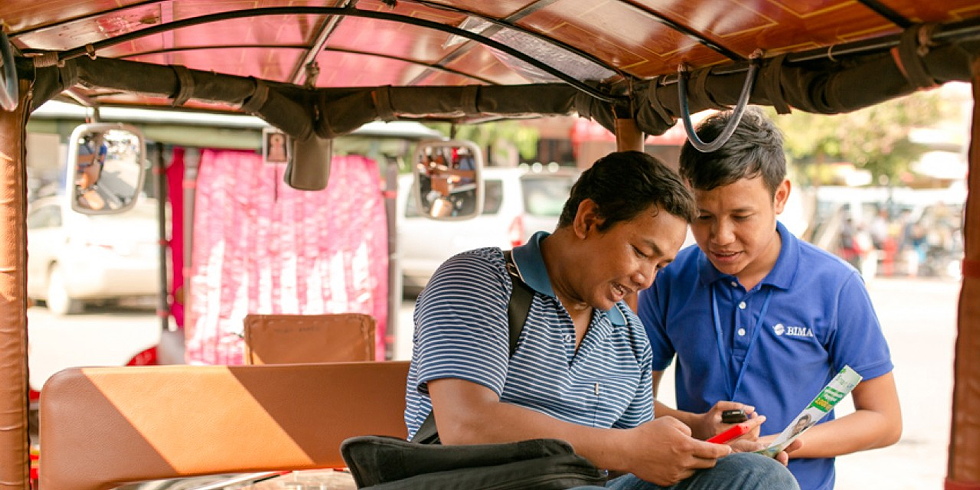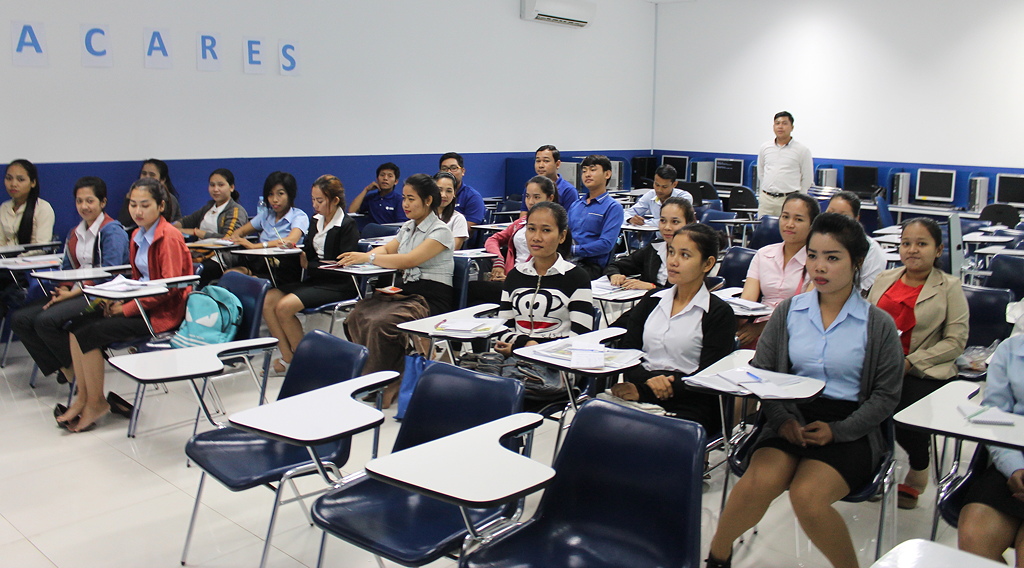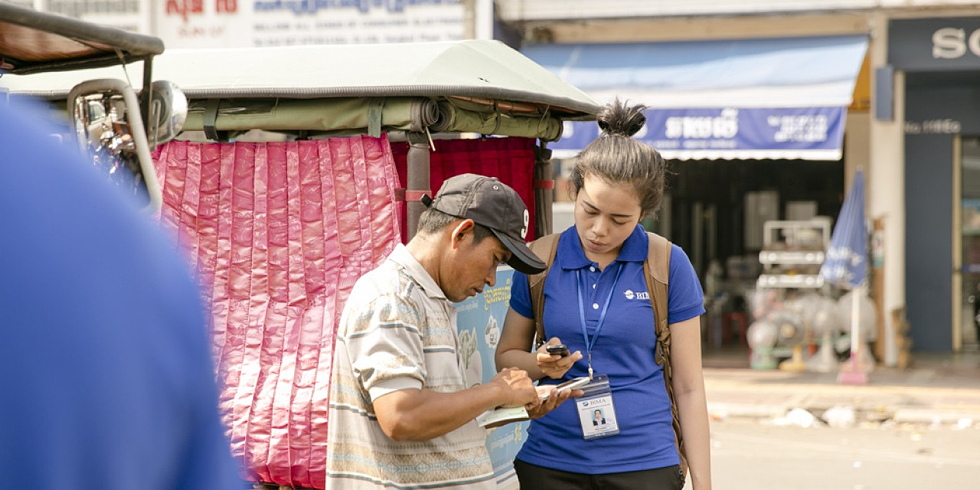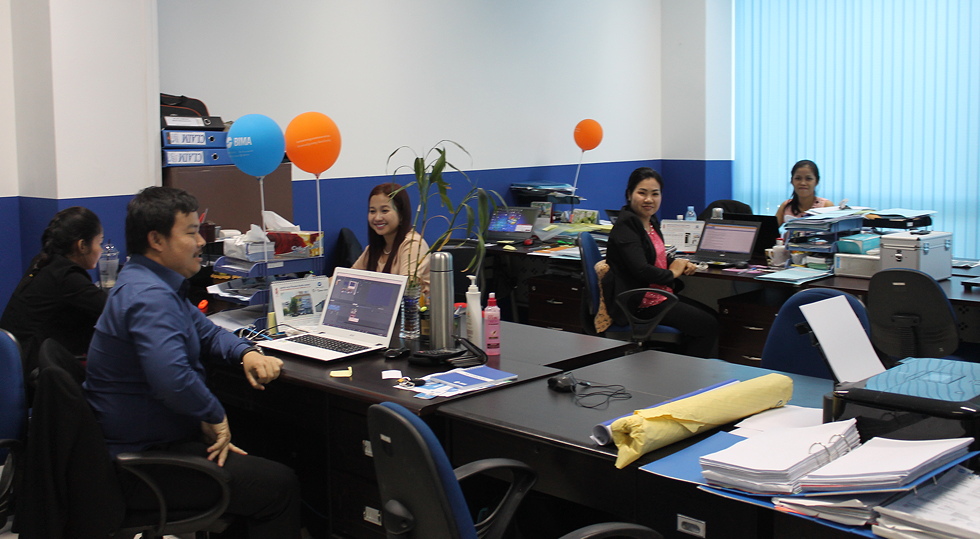
“Many people just don’t even know what insurance is. So the very concept of insurance, it is something we have to explain a lot,” says Sebastian Morck, General Manager at BIMA in Cambodia.
BIMA is a Swedish microinsurance company who started their project of bringing insurance to some of the poorest people in the world with a pilot project in Ghana in 2010. The project went well and with lots of interest and funding, it quickly expanded to reaching 16 countries across the world. Customers of BIMA typically live on less than $10, which means they often are not able to afford a normal insurance. They are also often living with high risks for illness and have job that can easily cause serious injuries, leaving people extremely vulnerable to falling into complete poverty.
When BIMA came to Cambodia in 2014, there were not many opportunities to take out an insurance for the many people in Cambodia who lives on the edge of poverty. So having to explain the entire concept of having an insurance became a natural part of BIMA’s work. And it still is today.
“Once you explain it you meet a lot of trust issues, because people are living near the poverty line. They are used to the concept of; I give a dollar, I get some. And that’s not how insurance work. You buy insurance but hope you’ll never use it,” says Morck.

Meeting garment workers and tuk tuk drivers
In Cambodia the company has a team of around 250 employees, where only two of them are expats, Morck and country manager Tapas Kuila. They work with two sales teams, one is a call central where they call people up and ask them about insurance. The other sales agents are out in the field, visiting garment factories, talking to tuk tuk drivers and more. Morck explains that he thinks that local employees are important to not be too far removed, and that he, as the general manager, also prefers going to the field as often as possible. Just before meeting with ScandAsia in the afternoon, he had been out visiting a garment factory.
“I try to go to the field as often as I can and really see how things work. Otherwise I am just sitting here at my desk and come up with great ideas that just do not work in the real world. So it’s important to go and see what happening,” he says.
Insurance through prepaid SIM
Taking out an insurance often takes tons of paperwork, declarations and sometimes even health check. But not when registering for an insurance with BIMA.
Lots of people living near the poverty line do not have a bank account, however, most of them have phones, this is something that BIMA saw as an opportunity. A 2015 research study from The Asia Foundation shows that over 94 percent of the Cambodian population own at least one mobile phone, and 39.5 percent own a smartphone. By working together with Smart, a leading mobile phone operator in Cambodia, BIMA makes it easy for almost everyone to get access to an insurance policy. If a person has a SIM from Smart they will just have to dial a short number and answer five easy questions and then they are able to get insured. No paperwork, no health check, and the money will simply just be paid through a deduction of their already purchased pre-paid airtime credit for their phones.
In a country like Cambodia, there was only an insurance penetration on around 3 percent, so a lot of people could easy go completely bankrupt if an accident were to suddenly happen. It has severe consequences for these people, and can follow the next generations in a bad circle. The mobile technology has made it easier for BIMA to reach the full, mass-market potential of microinsurance.

Using Facebook to claim compensation
Keeping it simple is not just about the lack of paperwork when signing up for an insurance. When an accident happens, customers of BIMA are able to claim their compensation simply by contacting BIMA through Facebook.
“We are trying to make the claims very easy, so we handle almost everything on Facebook,” says Sebastian Morck.
It can often be difficult to get your insurance sum paid out after an accident and can take a long time for the individual or their relatives to collect all the necessary proof and then for the insurance company to process it and validate it. For people living near poverty the financial impact of losing a family member or getting injured can be felt almost immediately, so BIMA guarantees to pay valid claims within 72 hours of filing.
Sebastian explains that BIMA just want the absolute minimum, whatever that can prove that a customer has been injured, in the hospital or someone has passed away. And sending a photo through Facebook is their usual go-to.
“Also many people live very rural and cannot go back and forth two or three times to get the sum paid out. This just makes sense. Almost everyone knows someone who has Facebook,” he says.

Covers expensive funerals and funds education
By spending just $1.6 of their pre-paid credit, with BIMA Cambodians are able to get health insurance that covers up to $10 a night or a life insurance that offers up to $3000. Compared to insurance in western countries, it might not sound like a lot. But with a GPA per capita just around $1000 it will cover three annual wages or more for the average family in Cambodia.
“Living near poverty it is a huge problem. These are people who just manage to scrape enough money together to buy a tuk tuk or get a job at the garment factory. They are hoping to send the kids to school, working really hard, but the slightest change of event sends them back down. Down into poverty and absolute bankruptcy. If we can for $1 a month take at least part of that risk away, I think it’s amazing,” says Morck.
A big part of the insurance sum often goes to covering funeral expenses. It is important to pay a respectful goodbye and funerals in Cambodia often becomes very expensive and can bring people into debt for years, bringing along many consequences. The rest of the sum is often put aside to fund education for their kids.
“If the kids don’t get their education, then the next generation also suffers. With the pay out they can have a better future.”
